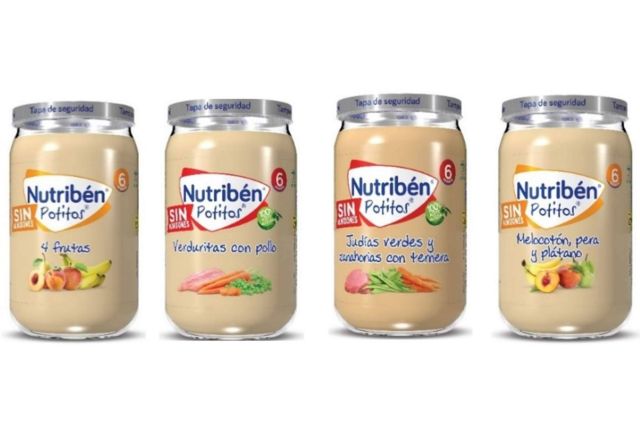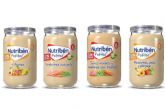

Belén Concejero, pediatric physical therapist and osteopath, neurodevelopmental expert at @littlebylittlefisioterapia, gives keys to raising happy, healthy babies
Often the image of a physiotherapist in adult life is associated with diseases that must be treated, but in the first months of life this figure is indispensable, not only on a pathological level, but also to provide well-being and tranquility to the family and avoid future complications. Pediatric services will often detect serious illness or neurodevelopment-related conditions early, however, for the welfare of the family, a step further and healthy babies or babies who are developing normally will be reviewed. A physical therapist may be advisable.
The position of the baby during pregnancy and delivery can cause small tensions that are annoying for the baby in daily life (feeding, resting…) but if treated correctly in the session of a physiotherapist , can be solved. Can be solved in a short time.
Additionally, it is especially useful and a source of inspiration for new parents. Initially, a physiotherapist can help to better understand the reality of the baby at each stage of growth, in addition to providing tools to improve daily life: correct posture for bottle feeding or breastfeeding, treating digestive problems at home or dealing with the first runny nose and Nasal wash.
What are the most common complaints among newborns?
Digestion
Colic in infants: An estimated 8 to 40 percent of infants suffer from colic. That is, they cry for more than three hours a day, more than three days a week, and for at least three weeks.
Reflux: Occurs because the esophageal sphincter, the last area of the esophagus, sometimes fails to fully close or relax, allowing stomach contents to rise, causing regurgitation or vomiting. Gastroesophageal reflux disease can result if the baby becomes uncomfortable and causes feeding problems.
Constipation: A common condition in infants. Because the digestive system is immature, peristalsis and absorption are slow. In babies older than 6 months, this may be caused by a low-fiber diet or lack of water intake.
respiratory system
Bronchiolitis: Swelling and buildup of mucus that affects the smallest airways in the lungs, called the bronchioles.
Common cold or upper respiratory tract catarrh: A viral infection that causes inflammation of the respiratory mucosa.
How to improve your baby’s health?
In the words of Belén Concejero, physical therapist, pediatric osteopath and neurodevelopmental specialist at @littlebylittlefisioterapia, one of the main functions of pediatric physical therapy is prevention, as early assessment helps identify problems in their early stages, teaches families to identify problems and provides tips to improve them.
digestive discomfort
Belén Concejero offers some key guidelines for improving your baby’s digestive health:
Carry and the right way.
Pilates ball, bouncing on the ball with your baby in your arms.
Digestive massage and neuromuscular bandaging.
Evaluate the type of feeding for BF and LA and whether it is being done correctly or if changes need to be made. And the baby’s physiological condition.
Feeding in the first few months of life plays a vital role in a baby’s health, which is why it’s important to trust lab-backed, guaranteed brands that offer the highest quality, safety and innovation, like Nutribén® since 1963 Always an expert on infant feeding, he provides us with the key to alleviating these conditions.
Prevent your baby from drinking too much milk at one time or eating too fast.
Pass gas frequently during and after feedings.
Do not put him to bed immediately after feeding, but keep him in an upright position. Semi-sitting positions can lead to more reflux and reflux episodes and are therefore recommended to be avoided.
Pay special attention to your diet: In cases of reflux, it is ideal to choose specific “anti-reflux” formulas, which are usually thicker and make it difficult for stomach contents to return to the mouth. In addition, adding fiber to the baby’s diet helps improve intestinal flora, facilitates transit and prevents constipation (fruits, vegetables, whole grains, cereals, legumes, nuts and seeds). It is also recommended to choose formulas or preparations such as those added to Nutribén:
Prebiotics: FOS (fructooligosaccharides) and/or OLM (oligosaccharides); and GOS (galacto-oligosaccharides).
B-palmitate: is a fat found in breast milk that improves digestion and softens stools.
Postbiotic.
respiratory discomfort
Bronchiolitis is a pandemic in the first months of life. Good prevention at home under professional guidance is essential to prevent babies from developing such a serious disease. In order to achieve this goal, consistent nasal washing and atomization play a key role.
Regarding nutrition, it is ideal to provide the baby with a balanced and complete diet based on vitamins and minerals (A, C, D and zinc) as well as OLMs (oligosaccharides) that contribute to the normal functioning of the immune system.
What feeding options are available to your baby?
New innova cereals have 0% no added or manufactured sugars and feature exclusive postbiotic* BPL1, recognized by the World Health Organization, European Food Safety Authority and the U.S. Food and Drug Administration.
Nutribén® innova ZER0% cereals are available in gluten-free versions, 5-grains and 8-grains:
They’re perfect in a bottle, on a plate, or added to BLW recipes like meatballs, pancakes, and more.
They are a source of fiber, iron, calcium and phosphorus.
They are a source of 11 vitamins.
They are composed of whole grains**.
No palm oil.
Features a zipper closure for added comfort and better storage.
formula milk
In addition to specific formulas for very specific conditions, Nutribén also has some of the most innovative preparations on the market, as Nutribén innovations have exclusive formulas based on:
OLM: Oligosaccharides present in breast milk.
BPL1® HT is an exclusive postbiotic derived from Nutribén® and alpha-lactalbumin, the main protein in breast milk.
Rich in iron, which promotes cognitive development, and vitamins A, C and D, which aid in the proper functioning of the immune system.
Potitos® are starch-free
Designed to meet nutritional needs and made from the best ingredients, all sourced from crops approved for use in baby food, 100% EVOO with no added salt or sugar, colours, preservatives, gluten or palm oil. They are produced in fully controlled areas and are certified safe by health authorities and undergo biochemical analysis of the food.
Nutribén® is guaranteed by food safety regulations and all its products are produced in its factory in Madrid, one of the most modern plants in the world with the most advanced technology guaranteeing the highest quality, safety and hygiene standards in order to Provides a comprehensive nutritional balance for your child’s development. It effectively complies with current European baby food safety regulations, which regulate and prohibit foods containing pesticides, contaminants or toxins, chemicals or pesticide residues.
*BPL1® is a registered trademark of Biopolis SL, used under license by Alter Farmacia SA
**Except Nutribén innova® Gluten Free Cereal 500g.
